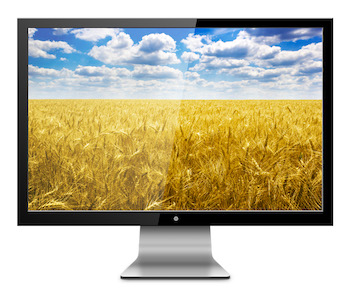
A mockingbird staged a David and Goliath battle in my back yard recently, chasing and dive-bombing a much-larger crow. Eventually, the crow flew off with unhurried flaps, as if unfazed.
This chasing, harassing behavior is called mobbing, even when there’s only one bird doing it. This mockingbird was diligently protecting its nest in the neighbor’s yard.
Later that morning, I spotted a crow mobbing a turkey vulture—a bird that shouldn’t be a threat to the nest, as it only forages on carcasses. That crow was taking no chances and attacked with vigor until the vulture abandoned the area.
The crow spent a lot of energy for little obvious benefit.
This got me thinking about human behavior. How much time do we spend chasing the birds larger than us? When does the chase make sense, and when are we wasting everyone’s effort?
Although the meditation may not lead to anything profound, nature provided creative fodder.
If in doubt, go outside
The natural world is rich with metaphors and wisdom.
While the obvious analogies (sly as a fox) may be commonplace, we find a fresh or intriguing patterns if we zoom in or get enough distance. (Ungainly as a turkey vulture?)
If you want to rejuvenate your writing processes, go outside. Get out in nature. If that’s not possible, bring nature inside.
Your butt cannot always be in the chair
If you’ve read The Writer’s Process, you’ll be familiar with the idea of the Muse and the Scribe. The Muse embodies our creative, generative thought processes, while the Scribe embodies discipline and focused attention.
Every compendium of writing advice includes the gem: Get your butt in the chair. It’s great advice. If you want to be a writer, then write!
But it only addresses half of our writing equation. A diligent Scribe isn’t enough if the Muse is absent.
We are not writing machines, but imperfect human beings. We need inspiration. Our attention flags. Our brains wander off to other tempting things, particularly when the work is difficult.
To feed the Muse, simply step outside. And if you can’t do that, find a natural scene or tree to contemplate.
The hard science about nature and writing
Nature in all its forms is a balm to writers. Countless writers report using outdoor walks or time spent in nature as part of their process.
Don’t rely on the stories alone. Science backs up the role of nature in the writing process.
Replenishing focus and attention
Nature boosts your focus. Researchers in Michigan had people spend time on a difficult memorization task before taking a break. Half the study participants walked in a tree-lined setting and the others on urban streets. Both groups then returned for more of the memorization, and the researchers tracked their performance.
Those who had taken a break in nature performed much better. The study refers to this idea as Attention Restoration Therapy.
Nurturing creativity
A 2015 study by Dutch researchers, published in the journal Urban Forestry and Urban Greening, demonstrated that access to forests improved creativity for creative professionals.
More recently, in a study published in Thinking Skills and Creativity, researchers found using natural images as Zoom backgrounds improved creativity on conference calls!

Reinforce your commitment to nature in writing
Maybe nature is already part of your daily routine. I hope so. (If this post inspires a walk, my time was well spent!)
Simply going outside is useful. But for the full effect, when you’re outdoors, turn off the audiobook or podcast and really look around.
Can’t get outside easily?
Add nature to your indoor environment.
- If you have a window, take time to gaze out at the trees.
- Even looking at photos of natural environments can have an impact, so change your screen saver or post a photo of a favorite natural place nearby.
- Don’t forget about sound—consider adding a natural soundscape to your work environment.
I enjoy listening to birdsong when editing—it feels soothing. Sometimes I search for streaming recording devices in nature preserves and listen to them while editing.
What’s your favorite way to add nature to your writing process? Share it in the comments.
Related reading
Find a roundup of more research on cognitive and creative benefits of writing, read Nurtured by Nature from the American Psychological Association.